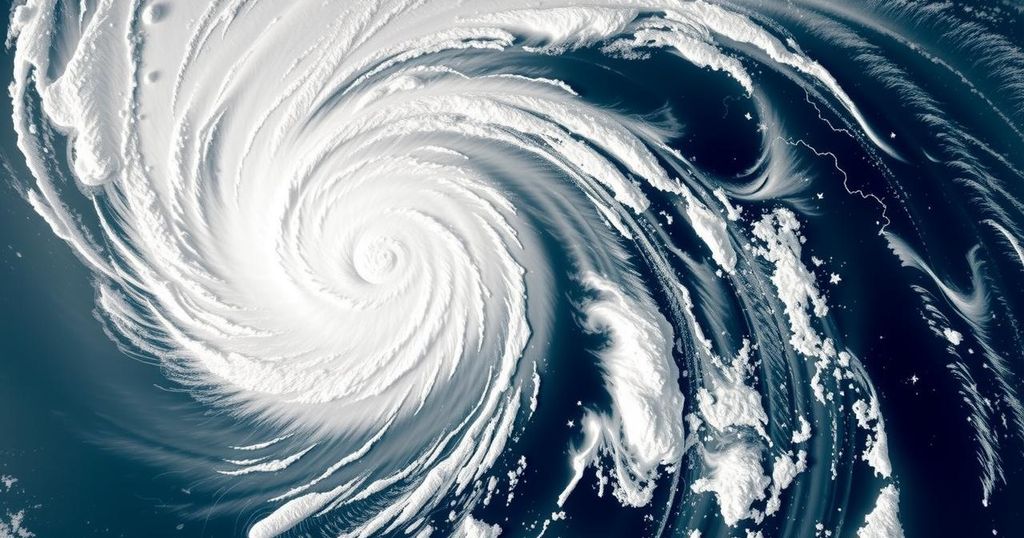Cyclone Chido Causes Widespread Damage in Mayotte Amid Preparations for Further Impact
Cyclone Chido devastated Mayotte, causing extensive damage with winds over 220 km/h. Local officials have initiated emergency responses amid ongoing alerts. The cyclone is predicted to impact Mozambique next, raising concerns for millions. Southern Africa’s vulnerability to severe weather is exacerbated by climate change, necessitating improved preparedness and support measures.
The French territory of Mayotte faced severe devastation following the onslaught of Tropical Cyclone Chido, which generated winds exceeding 220 kilometers per hour. This cyclone represents the most powerful storm to impact the region since 1934, causing significant destruction to infrastructure, including the loss of roofs on numerous homes. While there have been no immediate reports of fatalities, the impact on the population, which exceeds 300,000 across two islands, has been profound, leading local officials to initiate emergency response protocols.
Mayotte’s Prefect, Francois-Xavier Bieuville, indicated that the highest alert level was temporarily lifted to facilitate rescue efforts after the cyclone’s peak intensity had subsided. Nevertheless, residents were advised to remain sheltered due to an ongoing red alert status. French Interior Minister Bruno Retailleau echoed concerns about extensive property damage, stating that both state and local emergency services are fully engaged in response efforts.
Local reports highlighted that thousands of homes are currently without power, and many structures, including tin huts, have been lost to the cyclone’s force. To assist with the recovery, France has dispatched ten rescue personnel along with firefighters to the region, with additional reinforcements planned for the following days. The neighboring islands of Comoros are also feeling the impact, leading authorities to issue a high alert and restrict maritime activities.
The cyclone is expected to maintain an eastern trajectory, potentially impacting Mozambique by late Saturday or early Sunday. The Mozambican disaster agency has warned that up to 2.5 million individuals may be adversely affected, particularly in the northern provinces. Consequently, landlocked nations such as Malawi and Zimbabwe are proactively preparing for possible flooding and are advising residents in vulnerable areas to seek higher ground.
With cyclone season lasting from December to March in the southeastern Indian Ocean, regions in southern Africa are increasingly susceptible to severe weather patterns exacerbated by climate change. Past cyclones, notably Idai and Freddy, have resulted in significant loss of life and extensive humanitarian crises in the affected countries, highlighting the urgent need for disaster preparedness in the region.
Cyclone Chido has highlighted the vulnerabilities of coastal regions in the Indian Ocean and the severe impact of climate change on the frequency and intensity of cyclonic activity. The cyclone season between December and March sees an uptick in storm occurrences, often leading to catastrophic consequences for southern African nations, which have limited resources to respond effectively. Historical events have demonstrated that such cyclones not only threaten infrastructure but can also lead to deadly outbreaks of waterborne diseases, compounding the challenges faced by these communities and their governments.
In summary, Cyclone Chido has wreaked havoc on Mayotte and surrounding regions, resulting in significant property damage and posing serious risks to the well-being of the population. With the weather system expected to impact Mozambique and potentially more areas, emergency services are on high alert. The ongoing threat of humanitarian crises subsequent to storm events highlights the critical need for sustained support and robust disaster preparedness mechanisms in regions increasingly affected by climate change.
Original Source: www.voanews.com




Post Comment